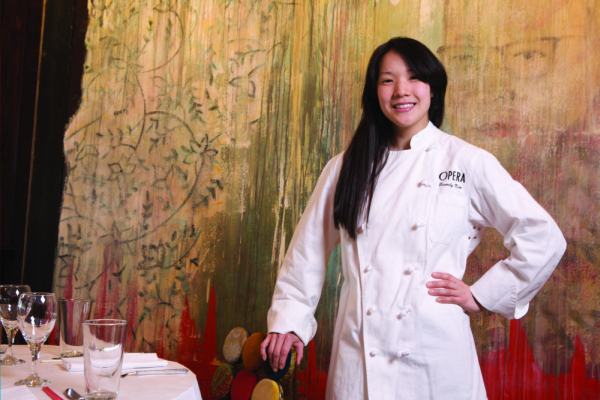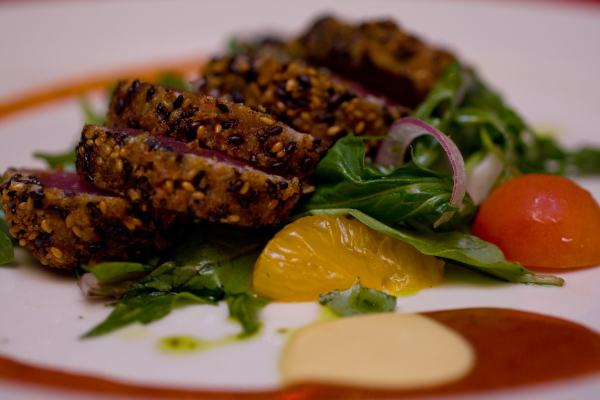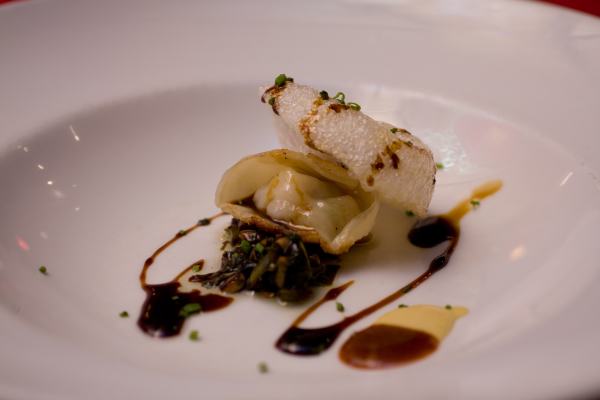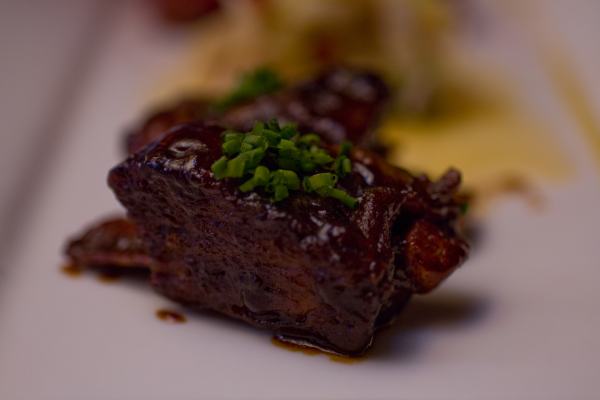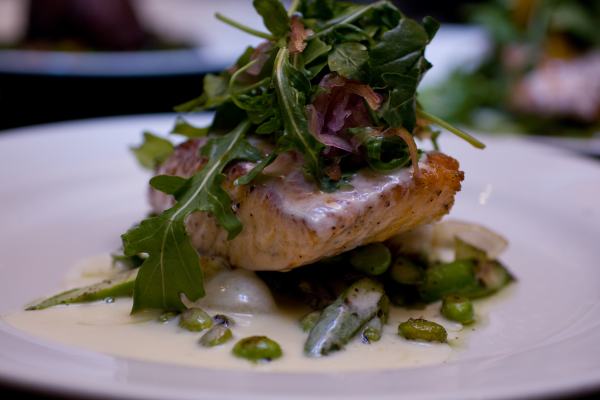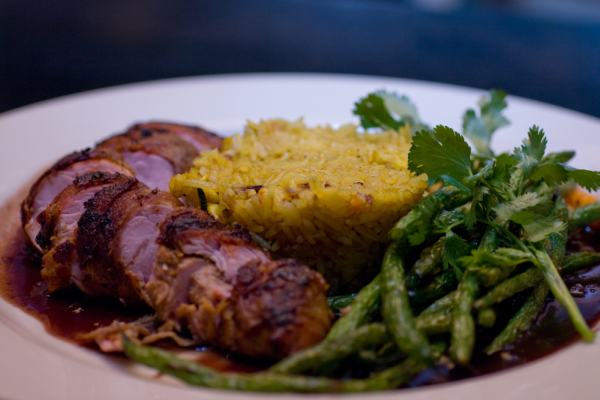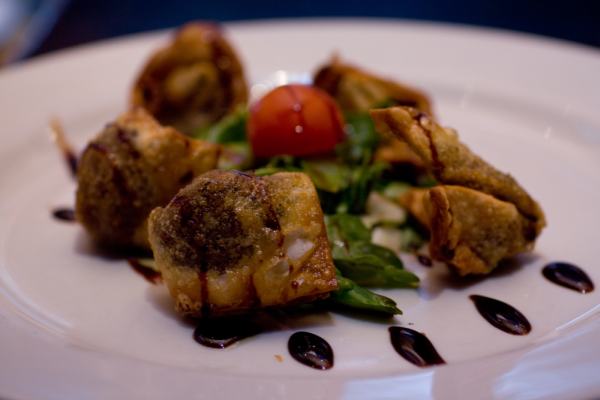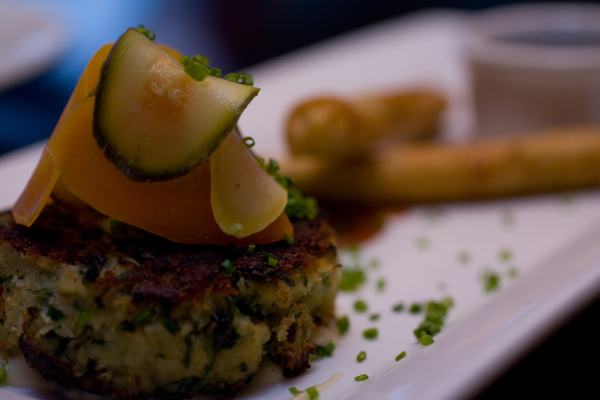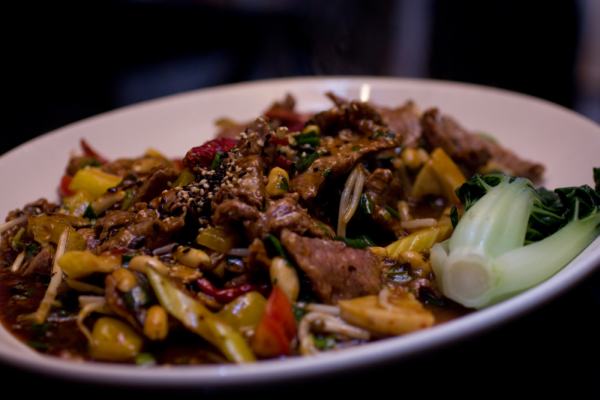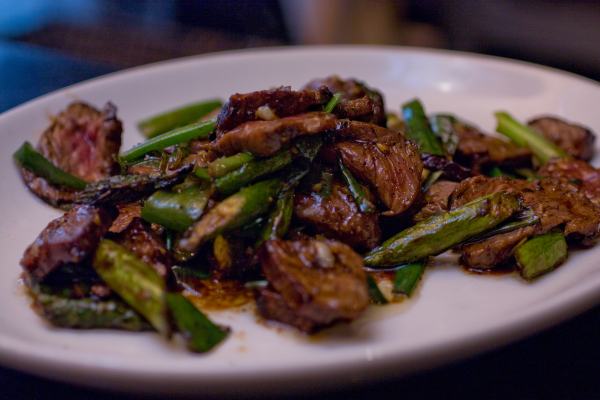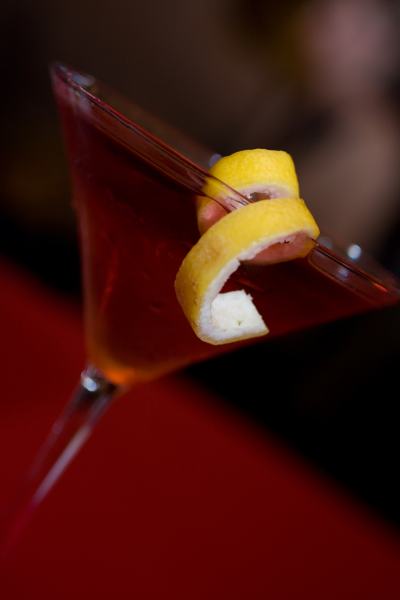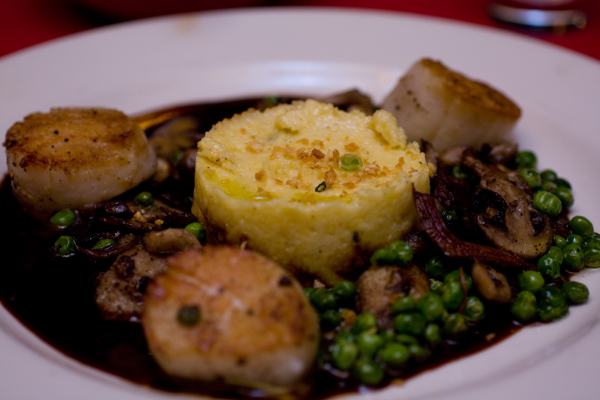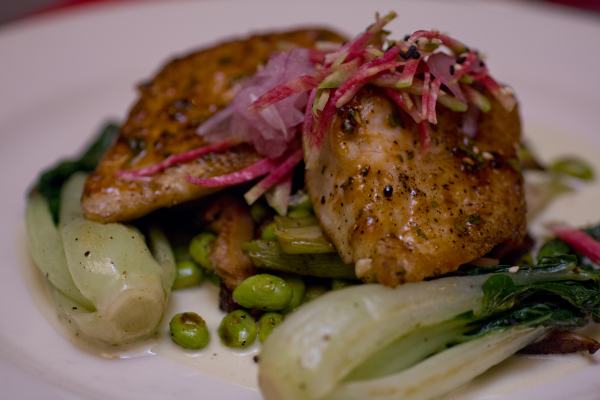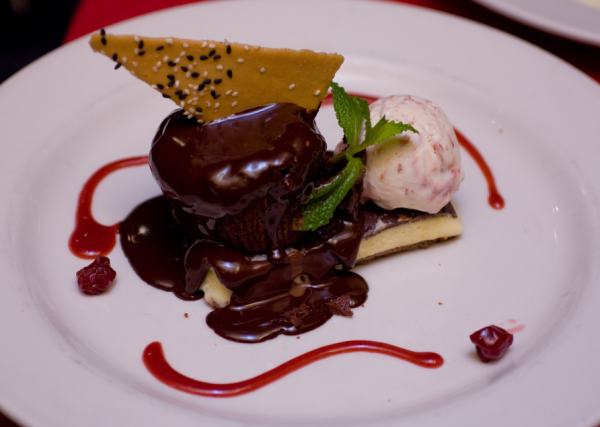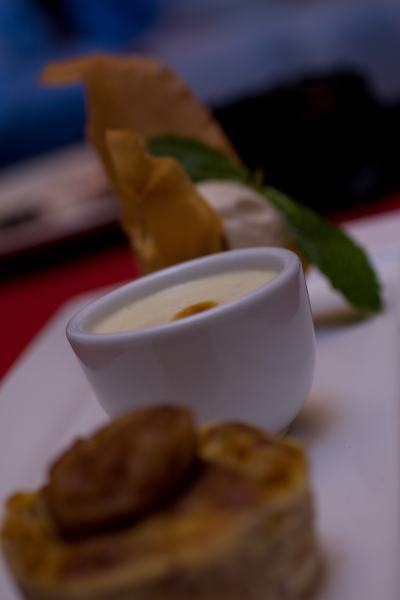Chicagoist Grills Opera Chef Beverly Kim (w/ Bonus Food Pr0n)
By L. Stolpman in Food on Oct 2, 2008 3:30PM
We sat down with Beverly Kim, the Executive Chef of Opera, to learn more about how this 28-year-old Korean-American woman became the head of the kitchen in one of the South Loop’s premiere Chinese restaurants and to hear about her responsibilities at Opera.
After graduating from Kendall College in 2000, Chef Kim went to work at the Ritz Carlton, then at the helm of Chef Sarah Stegner. She was inspired by Chef Stegner partly because there weren’t nearly as many female executive chefs as male executive chefs. Asked if it was still a man’s world in the kitchen. Chef Kim said, "Not as much. You still see more men executive chefs than women. It’s growing in number but it will take years to catch up with the men. Generations, probably."
Chef Kim had initial reservations about her work while at the Ritz. "It was so traditional French, I wasn't sure if it is my style. So I told Chef Sarah I really, really want to work for Charlie Trotter’s and I really liked it. So I went to Charlie Trotter’s. I was 21 years old. He was doing a lot of edgy stuff. He was not using cream. He was using different kinds of olive oils, sous vide cooking, foams. I had to do a fruit plate for him at one o’clock every day for eight months. A fruit plate that had to be different and creative every time. What I learned from that experience is that while sous vide cooking has a lot of flavor, it created a lot of plastic waste. Every single thing that you did, you have to ‘plastify’ it and it’s expensive plastic and it’s waste."
The hours at Trotter's were long and demanding. Chef Kim would get home at 3:30 in the morning to catch a few hours of sleep before turning to get back to the kitchen by 10 or 11 the next morning. "I worked there (Trotter’s) for about a year and four or five months," she said. "It was very intense; I worked about 90 hours a week. I got into two car accidents, falling asleep at the wheel because I was so tired."
The experience, Kim said, "gave me that foundation of being tougher. I was exposed to a lot of really good high quality ingredients and in an environment that produced some of the best sommeliers and the best cooks. People who strive, people who are competitive."
After working at Trotter’s she took a break from the intense kitchen and tried her hand with a catering company, J and L Catering. "It was a nice break and a nice way to learn how to do parties. I was there for about 2 and half years and I became a sous chef there at around 25. It was my first sous chef job and it was incredibly good because it toughened me. You have a lot of chefs who are older than you and then suddenly you’re the boss."
As she gained more experience, Chef Kim learned to take control of the kitchen. "You have to put in your time and show them that you can do everything better and faster and you have to treat them with respect and in the end, you have to stand up for yourself. If there are people giving you shit, I don’t stand up for it. You have to fire them. Before, I didn’t know how to react to certain comments and it would make me very angry but now I know that I can brush it off and I can tell someone that I have the choice on if they have this job or not and if they don’t want to work here, please leave my restaurant. There’s a way we treat people here, a way you must treat me."
Kim decided to get back into a restaurant kitchen to get more hot line experience, so she left catering to go to Prairie Grass Café with her old boss Stegner, whom she describes as her “toughest mentor.” A near-death accident in her car caused her to re-evaluate what she’d done thus far in her career. Kim decided to head to Korea to study Asian cuisine.
"I’ve always dreamed of opening a Korean restaurant," she said. "Or, if not Korean, a Pan-Asian restaurant. I wanted to see what the Eastern world was like."
She took a language course in Korean, walked into Top Cloud in Seoul and requested a job. She was directed to Shilla Hotel (owned by Samsung and one of the most prestigious restaurants in Seoul) and talked herself into a job working with two traditional, female chefs. Soon, Kim discovered that not all kitchens function the same.
"A Korean kitchen is very different. The mentality is very different. Here, people work in their own world, their own station, in a sense. I think the Korean kitchen is much more communal, more rotation. There’s a lot more attention to detail. And the tastes are different. Our tastes are very heavy here, whereas Koreans likings are lighter, more clean flavors."
Chef Kim continued her education in Korean by taking Cuisine courses at the Institute of Korean Royal Cuisine in Seoul, taught by a woman whose mother was the cook for the last king of Korea. Upon her return to Chicago, she decided that she needed to work in an Asian restaurant and hired on at Red Light, where she became sous chef. After a year at Red Light working under Chef Jackie Shen, she was offered the opportunity to try for a position at Opera. After surviving a tasting, she was offered the position of Chef de Cuisine under Chef Paul Wildermuth in August 2007 and eventually promoted to Executive Chef earlier this year.
With the position come new responsibilities. "Every restaurant is different. There are some restaurants that are corporate to the point where the executive chef does nothing but paperwork and menu concept but not actual cooking in the kitchen." Kim added, "I do daily specials, any menu changes, consistency of the food, I clean the fish every day, I run the line for lunch and dinner,and make sure the food looks the way I want it to be."
Kim said of the current menu, "a lot of it was passed down. This is the kind of restaurant where we have a lot of regulars, so to change anything too fast would be a mistake. What I’ve done so far is to maintain it and to tweak some things. Any time a chef changes something, you’ll find some resistance. I also didn’t have a sous chef so I worked open and close for many days in a row. So, for me to do all the paperwork of an executive chef, on top of all of the ordering to daily specials, to just maintaining and coming up with new menu items…it’s very difficult. Cooks had to be retrained. We had lunch that we re-started. It’s been a lot of trying to do a couple things better each day, get better at what I’m doing and be consistent."
Kim is also slowly putting her stamp on Opera's front-of-house. "We don’t try to control their personalities and cookie-cut the servers. But at the same time, there are some things that have to be consistent. You have to give everyone the same service you would give everyone else. You have to be consistent. If there’s inconsistency in service, that’s why people don’t come back. It’s the same thing with food. They are paying for that consistency; great food, great service."
